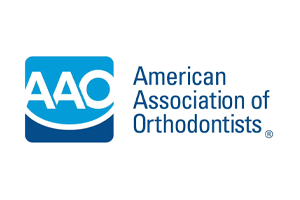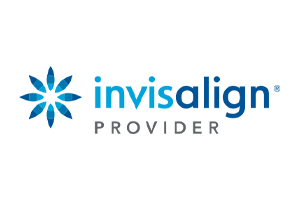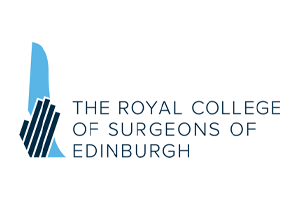What are adult braces?
Adults can choose from the same range of braces as our younger patients:
- Fixed braces with clear or metal brackets
- Removable Invisalign aligners
The only braces not suitable for adult patients are functional appliances, which are designed to treat growing jaws.
At your initial consultation, we’ll explore all your treatment options and find the perfect brace for you.
Invisalign aligners

Invisalign aligners are loved by teens and adults. They’re almost invisible, and you can take them out to eat, drink and clean your teeth.
You’ll need to wear your aligners for 20–22 hours every day, so there’s some freedom to remove your aligners for moments when you’d prefer to be brace-free.
In most everyday scenarios, friends and colleagues won’t even realise that you’re wearing braces.
We can treat a wide variety of malocclusions using clear aligners, from simple spacing to severe crowding and bite problems.
Occasionally, we might recommend fixed braces over Invisalign, but train tracks can be discreet, too, with inconspicuous clear brackets.
Frequently asked questions
Here are some questions we’re often asked by our adult patients.
Do adult’s teeth move differently to children’s?
Sometimes, adults patients worry that their teeth will be difficult to move. Thankfully, that’s not the case. Adult’s teeth can move slightly slower compared to children’s, but the difference is negligible. You can expect the same beautiful results as our younger patients.
Will I need to visit the practice for appointments?
Regular check-ups are a valuable part of your treatment, but we can reduce your visits to the practice using the latest DentalMonitoring software. Using an app on your smartphone, we’ll ask you to take photos of your teeth, so we can review your progress and make sure everything’s on track.
Can I wear braces if I have a crown?
It’s common for adults to have restorations, including fillings, crowns, bridges and implants. During your consultation, specialist orthodontist Dr. Jackie Clue will examine your teeth and jaws and, if necessary, we’ll take X-rays to determine whether you’re suitable for braces. In most cases, restorations don’t cause any difficulties.
Can orthodontic treatment improve my bite?
Sometimes, orthodontic treatment alone can improve how your teeth bite together. If your jaws are misaligned, we can combine braces with jaw surgery for fantastic results.
Could braces damage my teeth?
If you keep your teeth and gums clean and visit your dentist for regular check-ups, you should start and finish your orthodontic treatment with a healthy smile. Most of the risks associated with braces are preventable if you look after your smile. We’ll go through any potential risks with you before we start your treatment.
Will braces affect my speech?
Fixed braces don’t usually affect your speech. If you opt for Invisalign, you might develop a lisp for the first few days. The more you talk, the sooner your tongue will adapt.
Will my teeth stay straight?
To keep your teeth straight, we’ll fit retainers when we remove your braces. It’s essential to wear retainers indefinitely to prevent orthodontic relapse, which is where your teeth return to their pre-treatment positions.
Can I whiten my teeth after braces?
Yes, teeth whitening is a popular finishing touch to braces that we can discuss at your consultation.
To arrange your no-obligation appointment with Dr. Jackie Bracken, contact our knowledgeable team or book your first appointment online.








